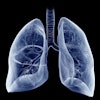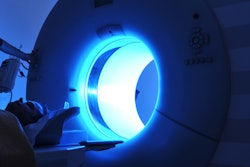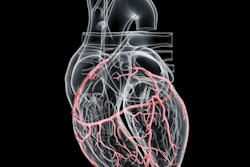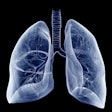
An artificial intelligence (AI) application can rapidly and accurately quantify stenosis on coronary CT angiography (CCTA) exams, according to a multinational study published online June 12 in the Journal of Cardiovascular Computed Tomography.
In a study involving 200 cases, researchers led by Dr. Andrew Choi of the George Washington University School of Medicine in Washington, DC, found that the AI software could identify a wide range of atherosclerosis plaque volume and plaque composition in all coronary arteries and their branches. What's more, it performed comparably to experts.
"This AI approach also enabled automated whole atherosclerosis quantification," the authors wrote.
Although quantification of atherosclerosis has been shown to be promising for stratifying risk for coronary artery disease (CAD), it's time-consuming and requires a high level of expertise, according to the researchers. As a result, they sought to utilize AI to perform a comprehensive assessment of CAD.
"We hypothesized AI aided analysis allows for rapid, accurate evaluation of vessel morphology and stenosis," they wrote.
They first gathered a dataset of 232 patients undergoing CCTA at the George Washington University Hospital in Washington, DC; the Lisbon University Hospital Center in Lisbon, Portugal; and the Cardiovascular Medical Group and Cardiovascular Research Foundation of Southern California of Beverly Hills, CA. The CCTA exams were performed on CT scanners from either GE Healthcare or Siemens Healthineers and included a wide range of atherosclerosis in the coronary artery territories.
Next, the authors uploaded the cases for review by Cleerly Labs (Cleerly Health), a software application that has been cleared by the U.S. Food and Drug Administration (FDA) and provides AI-powered coronary artery segmentation and labeling, lumen and vessel wall determination, and plaque quantification and characterization. Cases from the three sites were not used for developing or validating the software, according to the researchers.
All CCTA exams were analyzed for the presence of maximal diameter stenosis, plaque volume and composition, presence of high-risk plaque, and category according to the Coronary Artery Disease Reporting & Data System (CAD-RADS). The AI results were then compared with ground truth established in consensus by three level-3 experts, according to the researchers.
| Performance of AI algorithm in evaluating atherosclerosis on CCTA exams | ||
| For > 50% stenosis | For > 70% stenosis | |
| Accuracy | 94.8% | 99.7% |
| Sensitivity | 80% | 90.9% |
| Specificity | 97% | 99.8% |
| Positive predictive value | 80% | 93.3% |
| Negative predictive value | 97% | 99.9% |
In addition, Bland-Altman analysis showed a mean difference for maximal diameter stenosis of only -0.8% on a per-vessel basis and -2.3% on a per-patient basis between the expert readers and the AI software. Also, the AI software and the expert readers agreed within one CAD-RADS category in 98.3% of the exams on a per-patient basis, and 99.9% of vessels on a per-vessel basis, according to the researchers.
"Use of this FDA-cleared device as a clinical decision support tool in combination with enhanced CCTA education may improve the reproducibility of CCTA interpretation in various clinical and investigational settings," the authors wrote. "The results of this study provide an important foundational platform for future research in AI-guided atherosclerosis evaluation across a wide spectrum of disease and patients."



















